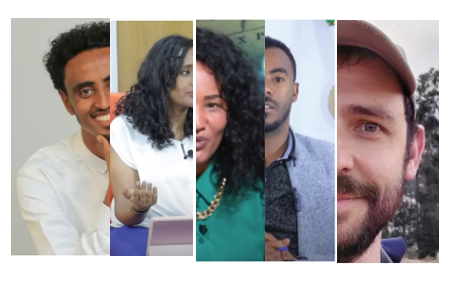In recent years, Ethiopia has presented a troubling landscape for press freedom, with the government, despite being a key ally to Western nations, demonstrating a concerning record of suppressing dissent. The use of the 2009 anti-terrorism law has been particularly contentious, with officials claiming that no one has been imprisoned for expressing opinions, while rights groups argue that the law’s broad terms are used to stifle legitimate dissent.
On February 22, journalist Antoine Galindo, working for the Paris-based news website Africa Intelligence, was detained by security forces in civilian clothing in Addis Ababa. His arrest occurred at the Ethiopian Skylight Hotel during an interview with Bate Urgessa, a political officer of the Oromo Liberation Front (OLF), a legally recognized party in Ethiopia. This event underscores the ongoing risks faced by journalists in Ethiopia, with Galindo’s detention being sharply criticized by Angela Quintal, the head of CPJ’s Africa program, as a flagrant violation of press freedom.

The crackdown on journalists has been particularly severe since the states of emergency and civil conflicts, with the government imposing restrictions that severely limit independent journalism. Aman Kiyaro, in December 2021 was arrested in the Ethiopia capital Addis Ababa accused of promoting terrorism, during the time of Tigray civil war. He faced accusations of promoting terrorism under emergency laws, with potential sentences of up to 15 years in prison.

In separate incidents between April 3 and April 13 of April 2023, a series of arrests targeted journalists in Addis Ababa and other regions, illustrating the ongoing threats to media freedom. These incidents included the arrest ofNikat Media founder and editor Meskerem Abera, Yegna Media reporter Genet Asmamaw, and Arat Kilo Media editor Dawit Begashaw were arrested alongside five other among. The arrests were often accompanied by charges of incitement or unauthorized reporting, with some journalists being assaulted while in custody.

The situation for journalists in Ethiopia has grown increasingly dire, as the government employs both legal and physical tactics to quell independent journalism. This systematic suppression acts as a formidable barrier to the freedom of the press, placing journalists under constant threat of arrest, assault, or worse for merely performing their professional responsibilities. Amid ongoing conflicts and unrest in the Amhara and Oromia regions, the unbiased reporting from these courageous individuals is crucial. Such a hostile environment not only places journalists at risk but also hampers the public’s ability to grasp the truth about the ongoing conflict between government forces and rebel militias. This scenario severely undermines the essential principles of freedom of expression and the right to information, which are fundamental to understanding the realities on the ground.

